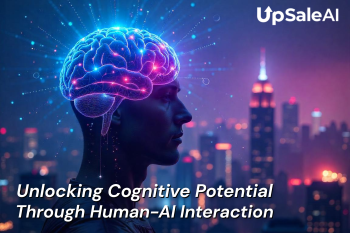According to a recent survey by Veterans United Home Loans, homebuyers are increasingly embracing AI tools in their property search, with 32% of prospective buyers utilizing AI assistants for tasks such as finding homes, taking virtual tours, and calculating mortgages, despite some lingering concerns about bias and the need for human interaction.
AI Adoption in Homebuying Demographics
AI adoption in homebuying varies significantly across different demographic groups, reflecting diverse attitudes towards technology and its role in major life decisions. Younger generations, particularly Millennials and Gen Z, are at the forefront of embracing AI tools in their property search process. These digital natives are more likely to utilize AI-powered platforms for virtual home tours, mortgage calculations, and property value estimations1.
Interestingly, 58% of AI-using homebuyers reported leveraging ChatGPT in their search process, while 35% used Meta AI and 34% used Gemini1. This suggests a preference for well-known, general-purpose AI tools over specialized real estate platforms, possibly due to familiarity and ease of access.
However, AI adoption is not uniform across all age groups. Older homebuyers, including Gen X and Baby Boomers, tend to be more cautious about fully embracing AI in their homebuying journey. This demographic often prefers a hybrid approach, combining AI-powered research with traditional human expertise from real estate agents and mortgage professionals2.
Income levels and education also play a role in AI adoption rates. Higher-income buyers and those with advanced degrees are more likely to incorporate AI tools into their homebuying process, possibly due to greater technological literacy and access to cutting-edge platforms1.
Geographical differences in AI adoption are also evident. Urban and suburban homebuyers show higher rates of AI tool usage compared to their rural counterparts, likely due to better internet connectivity and a more tech-savvy real estate market in metropolitan areas2.
Despite the growing adoption, concerns about AI persist across all demographics. Approximately 31% of prospective buyers express more concern than excitement about the increasing use of AI in daily life, while 29% feel more excited than concerned1. This split highlights the complex attitudes towards AI in the homebuying process, with many recognizing its potential benefits while remaining cautious about its limitations and potential biases.
As AI continues to evolve and integrate into the real estate industry, understanding these demographic trends will be crucial for developers, real estate professionals, and policymakers to ensure that AI tools are accessible, trustworthy, and beneficial to all segments of the homebuying population.
Key Benefits of AI Tools
AI tools are revolutionizing the homebuying process, offering numerous benefits that streamline and enhance the experience for prospective buyers. One of the most significant advantages is the ability to efficiently search for and view homes. Nearly 40% of buyers are using AI to both find and view properties, with 38% specifically utilizing AI to search for homes in their desired locations1. This capability allows buyers to quickly narrow down their options and focus on properties that meet their criteria.
Virtual home tours, enabled by AI technology, have become increasingly popular, with 37% of AI-using homebuyers taking advantage of this feature1. These tours provide a convenient way for buyers to explore properties remotely, saving time and resources while offering a detailed view of potential homes.
AI tools also excel at providing personalized recommendations based on user preferences and behavior. By analyzing vast amounts of data, these systems can suggest properties that closely match a buyer's specific needs and desires, often uncovering options that might have been overlooked through traditional search methods2.
Another key benefit is the ability of AI to assist with complex calculations and financial planning. Many homebuyers use AI-powered mortgage calculators and financial assessment tools to better understand their buying power and potential loan options. These tools can quickly process various scenarios, helping buyers make more informed decisions about their budget and financing options3.
AI chatbots and virtual assistants are becoming increasingly sophisticated, offering round-the-clock support to homebuyers. For instance, Redfin's "Ask Redfin" AI assistant can quickly answer questions about specific properties, providing valuable information without the need to wait for a human agent4. This immediate access to information can significantly speed up the decision-making process for buyers.
The efficiency gains provided by AI tools are substantial. By automating many time-consuming tasks, such as initial property searches and basic inquiries, AI frees up real estate professionals to focus on more complex aspects of the transaction. This can lead to a smoother, faster homebuying process overall5.
Lastly, AI is enhancing the accuracy of property valuations and market predictions. By analyzing vast amounts of data on market trends, property features, and local economic factors, AI systems can provide more precise and up-to-date valuations. This helps buyers make more informed offers and better understand the potential future value of their investments5.
While AI tools offer these significant benefits, it's important to note that they are most effective when used in conjunction with human expertise. The combination of AI efficiency and human insight provides a powerful approach to navigating the complexities of the homebuying process.
Ethical Challenges in Real Estate AI
As AI becomes increasingly integrated into the homebuying process, several ethical challenges have emerged, raising concerns among industry professionals, regulators, and consumers alike. One of the most pressing issues is the potential for AI systems to perpetuate or exacerbate existing biases in the real estate market.
A recent MIT study uncovered that OpenAI's ChatGPT exhibited racial bias when advising home buyers and renters1. This finding highlights the risk of AI systems inadvertently reinforcing discriminatory practices in housing, which could violate fair housing laws and perpetuate historical inequalities in property ownership and access.
Privacy concerns also loom large in the AI-driven real estate landscape. As AI tools collect and analyze vast amounts of personal data to provide personalized recommendations, questions arise about data security, consent, and the potential for misuse of sensitive information. Homebuyers may be unwittingly sharing intimate details about their financial situation, family composition, and lifestyle preferences, which could be vulnerable to breaches or exploitation.
The issue of transparency in AI decision-making processes is another significant ethical challenge. Many AI systems operate as "black boxes," making it difficult for users to understand how recommendations or valuations are generated. This lack of transparency can erode trust and make it challenging for homebuyers to make informed decisions or contest potentially unfair outcomes.
There's also the risk of over-reliance on AI, potentially leading to a devaluation of human expertise in the real estate process. While AI tools can process vast amounts of data quickly, they may lack the nuanced understanding of local market conditions, community dynamics, and individual client needs that experienced real estate professionals provide.
The digital divide presents another ethical concern, as access to AI tools may not be equitable across all demographic groups. Those with limited technological literacy or access to advanced devices may be at a disadvantage in an increasingly AI-driven market, potentially exacerbating existing socioeconomic disparities in homeownership.
Addressing these ethical challenges requires a multifaceted approach. Industry leaders and policymakers must work together to develop robust guidelines and regulations for the use of AI in real estate. This includes implementing rigorous testing protocols to identify and mitigate biases, ensuring transparency in AI decision-making processes, and maintaining strong data protection measures.
Education and awareness programs for both real estate professionals and consumers are crucial. These initiatives should focus on the capabilities and limitations of AI tools, empowering users to leverage technology effectively while maintaining critical thinking and human oversight in the homebuying process.
As the real estate industry continues to embrace AI, striking a balance between technological innovation and ethical considerations will be paramount. The goal should be to harness the power of AI to enhance the homebuying experience while safeguarding against potential harms and ensuring fairness and inclusivity in the housing market.
Industry Responses to AI Concerns
The real estate industry has been proactive in addressing concerns surrounding AI adoption, recognizing the need to balance technological innovation with ethical considerations and consumer trust. Many industry leaders are implementing strategies to mitigate risks and enhance the responsible use of AI in homebuying.
To combat potential biases in AI systems, some real estate companies are partnering with AI ethics experts and diverse teams to develop more inclusive algorithms. For instance, Lofty (formerly Chime) has created one of the industry's most advanced AI assistants for real estate agents, focusing on fairness and transparency in its recommendations1. This approach aims to reduce the risk of perpetuating historical biases in property valuations and neighborhood recommendations.
Addressing privacy concerns, real estate platforms are enhancing their data protection measures and providing clearer opt-in processes for AI-powered services. Many are adopting a "privacy by design" approach, ensuring that data collection and usage are transparent and compliant with evolving regulations. Some companies are even exploring blockchain technology to secure property records and transaction data, further protecting consumer information.
To increase transparency in AI decision-making, several real estate firms are developing explainable AI models. These models provide clear rationales for property recommendations and valuations, allowing users to understand the factors influencing AI-generated insights. For example, TrackNotion's AI-powered sentiment analysis tool for real estate offers detailed explanations of how it scores buyer and seller intent, making the process more transparent for agents and clients alike2.
The industry is also addressing the potential over-reliance on AI by promoting a hybrid approach that combines AI efficiency with human expertise. Many real estate companies are training their agents to effectively use AI tools while emphasizing the irreplaceable value of human judgment and local market knowledge. This balanced approach aims to leverage AI's strengths while maintaining the personal touch that many homebuyers desire.
To bridge the digital divide and ensure equitable access to AI tools, some real estate associations and companies are launching educational initiatives. These programs aim to improve technological literacy among both agents and consumers, particularly focusing on underserved communities. For instance, some firms are offering free AI tool training sessions and providing simplified versions of their AI assistants to ensure broader accessibility.
The mortgage industry is also responding to AI concerns, with companies developing more sophisticated and ethical AI chatbots. These chatbots are designed to provide accurate, unbiased information about mortgage options while clearly indicating when human intervention is necessary3. This approach helps maintain trust in the lending process while leveraging AI's efficiency.
Recognizing the importance of regulatory compliance, industry leaders are actively engaging with policymakers to develop AI governance frameworks specific to real estate. These efforts aim to create guidelines that protect consumers while fostering innovation in the sector.
As AI continues to reshape the homebuying landscape, the real estate industry's proactive responses to ethical challenges demonstrate a commitment to responsible innovation. By addressing concerns head-on and developing solutions that prioritize fairness, transparency, and consumer protection, the industry is working to ensure that AI remains a trusted tool in the homebuying process.
AI's Homebuying Revolution
AI is undeniably transforming the homebuying process, offering significant benefits while also presenting ethical challenges that require careful consideration. As the technology continues to evolve, it's clear that AI will play an increasingly important role in real estate transactions, with 32% of prospective buyers already utilizing AI assistants for various tasks1.
The key to successful AI integration in real estate lies in striking a balance between technological innovation and human expertise. While AI tools can streamline searches, provide virtual tours, and offer personalized recommendations, the human touch remains crucial in navigating the complexities of homebuying2. As the industry moves forward, it must prioritize addressing ethical concerns, ensuring transparency, and promoting equitable access to AI tools. By doing so, the real estate sector can harness the power of AI to enhance the homebuying experience while maintaining trust and fairness in the market34.















